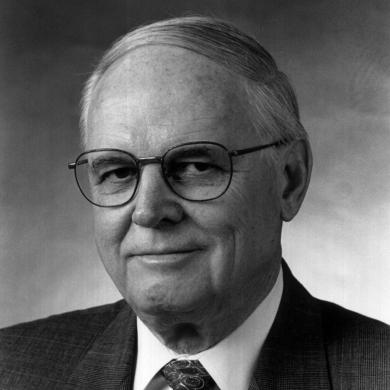
The Work Goes On
Ray Marshall on his path from an orphanage in Mississippi to U.S. Secretary of Labor
Episode
18
-
Ray Marshall, Professor of Economics emeritus and Rapoport Centennial chair in Economics and Public Affairs at the University of Texas at Austin, joins the podcast to discuss his childhood in a Mississippi orphanage, how the GI bill helped him become an economist, and his experience as Secretary of Labor in the Carter administration.
In this episode, Marshall and Ashenfelter discuss:
- Marshall’s experience living and attending school at the Mississippi Baptist Orphanage, and why he left at 14 years old and joined the Navy the following year.
- Marshall’s path to earning his Ph.D. at Berkeley, which included earning a GED after his time in the Navy, community college classes that led to undergraduate studies at Millsaps College, and eventually earning a Master’s Degree from Louisiana State.
- Why Marshall ditched his original plan to become a lawyer working in politics and decided to study economics instead.
- Marshall’s time as Secretary of Labor, including the time he convinced President Carter to raise the minimum wage despite calls from others, including Charles Schultz, not to. “Your problem is that you're monolingual,” Marshall recalls telling Schultz. “You can only speak economics. Now I'm bilingual. I can speak economics and Baptist.”
- Marshall’s views on labor movements, especially in the South. “But as long as we handicap it, like we've got it now with the obsolete laws and policies, you're not going to be able to get the kind of labor movement that we need,” Marshall said. “But I think that…people will find ways to get representation without having to go through the legal process.”
Ray Marshall earned his Ph.D. at the University of California at Berkeley. He served as U.S. Secretary of Labor from 1977 to 1981. "The Work Goes On"—a podcast produced as Princeton's Industrial Relations Section (IR Section) celebrates its 100th anniversary—is an oral history of industrial relations and labor economics hosted by Princeton's Orley Ashenfelter.
Links:
—
References:
- Marshall, F. Ray. Immigration for Shared Prosperity: A Framework for Comprehensive Reform. Washington, D.C.: Economic Policy Institute, 2009.
- Marshall, F. Ray. The Case for Collaborative School Reform: The Toledo Experience. Washington, DC: Economic Policy Institute, 2008.
- Getman, Julius G., and F. Ray Marshall. The Future of Labor Unions: Organized Labor In the 21st Century. [Austin, Tex.]: Ray Marshall Center for the Study of Human Resources, Lyndon B. Johnson School of Public Affairs, University of Texas at Austin, 2004.
